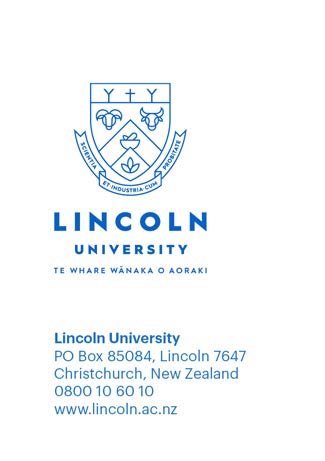
30 August 2023
Elia Gibbons
By email:
[FYI request #23757 email] Tēnā koe Elia Gibbons
I acknowledge your official information request of 9 August 2023, seeking data on sexual
violence definitions, incidents and responses at Lincoln University over the past five years
(2018-2022). Specifically, you requested the:
1. number of reports of sexual violence incidents, and whether they occurred on or off
university premises (including Halls of Residence)
2. University’s definitions of sexual violence
3. University’s responses implemented to address and combat sexual violence.
In response, I have addressed your questions in order below.
1.
Year
2018
2019
2020
2021
2022
No. of allegations
1
4
0
0
0
The incident in 2018 occurred off campus and was referred to Police.
In 2019, two of the reported harassment incidents were resolved by mediation
between the students involved and written apologies. The incidents occurred off
campus.
One on-campus sexual assault complaint involved a non-student alleged perpetrator
who was referred to Police (as well as being trespassed from campus).
Lastly, one sexual assault complaint was found to be unproven following investigation
by the University and Police. This incident occurred on campus.
2. The University Sexual Harm Policy definitions of sexual violence are, as follows:
Sexual assault: any kind of sexual contact initiated without actively seeking and
gaining mutual consent. It includes, but is not limited to, unwanted kissing, touching
of private body areas, fondling, oral or anal sex, intercourse, or other forms of
penetration, or any other unwanted act of a sexual nature.
Sexual harassment: ongoing persistent unwanted remarks, behaviours, or
communications of a sexually oriented nature, negative or derogatory behaviours or
communications based on gender that promote gender-based harm – where the
person responsible for the remarks, actions, behaviours or communications knows
or ought reasonably to know that these are unwelcome.


Sexual harassment may also consist of unwanted attention of a sexually oriented
nature, such as personal questions about one’s sex life, persistent requests for a
‘date’, or unwelcome remarks about someone’s personal appearance. It may also
include unwelcome remarks based on gender that are not of a sexual nature, but
which are demeaning, such as derogatory gender-based jokes or comments.
Sexual harm: any sexual act or act targeting a person’s sexuality, gender identity or
gender expression, whether the act is physical or psychological in nature, and is
committed, threatened or attempted against a person without that person’s consent.
This includes, but is not limited to sexual assault, sexual harassment, stalking,
indecent exposure, voyeurism, sexual exploitation, degrading sexual imagery,
distribution of sexual images or video of a community member without their consent,
and cyber harassment or cyber stalking of a sexual nature.
Acts of sexual harm can also be acts of sexism, racism, colonialism, ableism,
homophobia, and/or transphobia.
3. Lincoln University takes the education and messaging of sexual consent and sexual
harm prevention extremely seriously. The University’s Disciplinary Policy and
Procedure clearly identifies sexual assault as serious misconduct.
The University offers wide-ranging educational support and information for students,
including the introduction of a healthy relationships and consent programme for first
year students in 2019 that aims to prevent sexual harm. This year marks the fifth year
of the programme and reaching five cohorts of first year Lincoln students on campus.
The compulsory two-hour workshop is for all first-year students under 21 years old
and covers topics such as healthy relationships, consent, being an upstander/active
bystander to prevent harmful behaviours and how to access support services on
campus and in the community. The workshops are delivered by students who have
received facilitation and safety training around sexual harm prevention.
Also, there are several support services available to students provided by the
University and external organisations. These are listed on our website:
https://www.lincoln.ac.nz/student-support/safetyemergency-response/sexual-harm-
support-and-reporting/
If you wish to discuss this response, please contact the undersigned.
Please note that you are entitled, under section 28 of the Official Information Act 1982, to have
this response reviewed by the Office of the Ombudsman.
Nāku noa, nā
Tim Lester
Legal Counsel
Email
: [email address]


